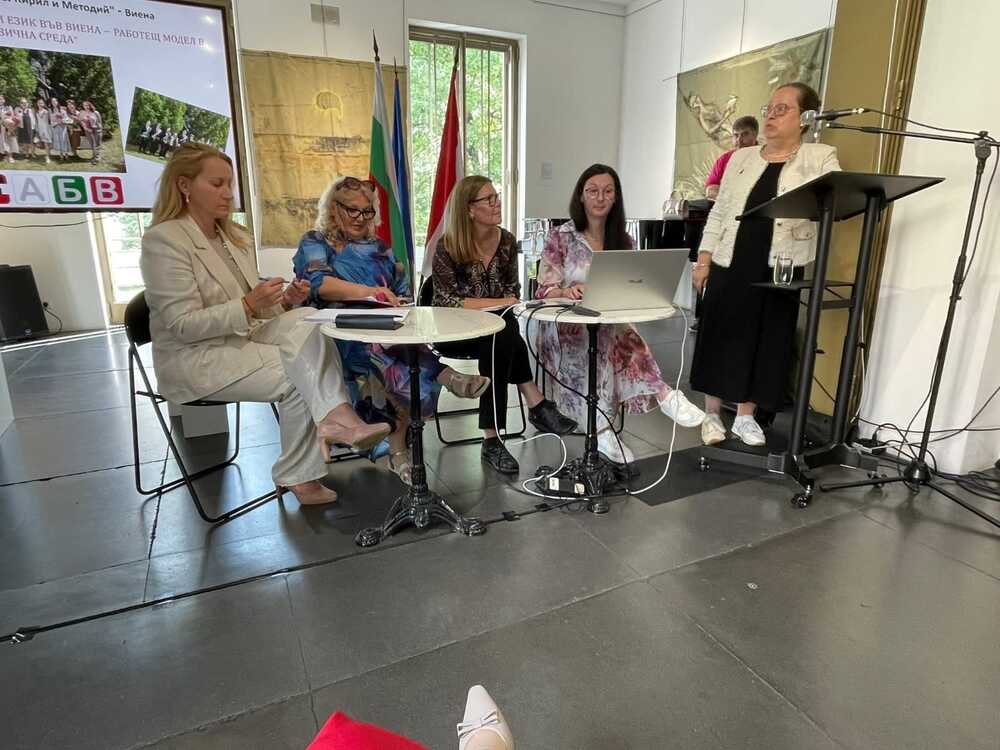site.btaFirst Meeting of Bulgarian Sunday Schools in Austria Held in Vienna


The first meeting of Bulgarian Sunday schools in Austria took place in Vienna on September 13, 2025. Details of the meeting were made public by the Bulgarian school Danube, which has branches in Linz, Salzburg, and Wels. The event was organized by the Embassy of Bulgaria in Austria and was hosted by the Haus Wittgenstein Bulgarian Cultural Institute.
It was attended by the five Bulgarian Sunday schools in Austria, Austrian educators and Bulgarian officials.
In her opening remarks, Bulgarian Ambassador Desislava Naydenova-Gospodinova emphasized the importance of Bulgarian schools as living centers for preserving the language, culture, and identity of the Bulgarian community abroad. Greetings were also extended by Prof. Rumyana Koneva, Director of Haus Wittgenstein; Vanya Balcheva, Director of the Directorate for Education of Bulgarians Abroad and School Network at the Ministry of Education and Science (via online participation); and Valeriy Radolov, Director of the Directorate for Bulgarian Communities and Information Activities at the Executive Agency for Bulgarians Abroad.
The first session of the meeting focused on foreign language programs and the teaching of Bulgarian language and literature abroad. Dr. Irina Vladikova, Head of the Bulgarian School of St. Cyril and Methodius in Vienna, outlined the difficulties faced by Bulgarian children who arrive in Austria at an older age, and stressed the importance of integrating the Bulgarian language into the Austrian education system.
Darina Tonkova from Linz, Director of the Danube school, shared some key challenges: some children perceive the school as isolated from the outside world, while parents see it as a commitment that takes away from their free time. Furthermore, the Bulgarian schools sometimes exist in a bubble isolated from the Austrian community, making it difficult for children to balance the "Bulgarian" and "Austrian" part of their lives. Tonkova gave many examples of good practices from the school’s 20 years of experience that aim to address these challenges.
The meeting served as a platform for the exchange of good practices, discussions on opportunities for cooperation, teacher training and qualification, and promoting the status of the Bulgarian language and culture in Austria.
/NF/
news.modal.header
news.modal.text